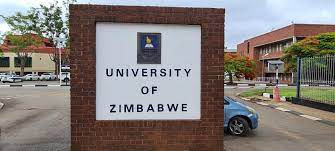




A recent report by the New York Times predicts that Africa's rising population, the youngest in the world, will transform the continent into a global economic powerhouse by 2050. Despite the lower global ranking of education systems in African countries, there has been a surge of innovations spearheaded by young students. The integration of innovation-driven subjects into school curricula, such as entrepreneurship and technology courses, has contributed to this advancement. Examples of innovative projects by African students include an excavator that runs on water invented by a Ghanaian student, an automated silage-making machine developed by Kenyan students, and a solar dryer for smallholder farmers proposed by Nigerian students [860c6d0e].
To maximize the impact of these education innovations, there is a need to consolidate efforts into a national framework. African colleges and universities have been making progress in research and innovation in food preservation and other technologies that support food supply chains. By consolidating scientific research and innovation, colleges and universities can develop apprenticeship models that are closely linked to the food industry. This will help in applying and refining food systems innovations and technologies to transform smallholder farming and market supply chains into commercial self-sustaining business models. The current challenge is that academic theory and literature in African colleges and universities do not provide space for piloting and up-scaling research products and innovations. The curricula also need to be more adaptable to the fast-changing industrial landscape. African colleges and universities should document local knowledge to inform local industry and apprenticeship needs. By investing their knowledge in converting informal supply chains into business models and industries, colleges and universities can tap into untapped opportunities and create employment for graduates. The consolidation of knowledge and outcomes will enable the creation of industries equipped with knowledge and skills from higher learning institutions [94b32fd3].
Technology conferences in Africa are providing opportunities for collaboration, development of technology businesses, and access to careers and entrepreneurship. African youth are realizing the potential of technology and are developing skills across the digital spectrum. The conferences are creating a foundation for learning and engagement with web development, AI, VR, and the Metaverse. However, there is a concern that outside nations may have ill intentions for African education. It is important for Africa to take control of its own education and not allow other nations to create programs that may lead African youth down the wrong path. The growth of technology in Africa should be seen as an opportunity for global cooperation and partnership rather than a threat. European nations can engage with African countries to foster mutual growth and address challenges related to technology, education, and business. African children need to be prepared for the future by acquiring the necessary skills to be employable, entrepreneurial, and innovative. The blending of learning, creativity, innovation, and tech programs can help build African businesses. It is crucial for African parents to prepare their children to be educated, employable, and scalable to adapt to the changing directions of technology. Continental education should be built to ensure that African children can contribute to the growth and prosperity of Africa [0b7eebde].
Professor Mrs. Goski Alabi, Consulting President of Laweh University College in Accra and Board Member of the African Network for Internationalisation of Education (ANIE), hails the launch of the African Foundation for Lifelong Learning (AFLL). The AFLL aims to advance inclusive and equitable quality education and lifelong learning opportunities for all in Africa, in line with SDG 4. The Foundation will focus on creating an inclusive learning ecosystem, promoting flexible education pathways, and emphasizing literacy, numeracy, digital literacy, vocational training, and critical thinking. It was launched at an event in Morocco and will provide digital solutions and establish a network for lifelong learning in Africa [ccceca0c] [860c6d0e].
Canon Central and North Africa has partnered with Rolof Computer Academy in Nigeria to empower youth and foster creativity. The collaboration will activate various education programs such as Canon Academy Juniors Programme, Miraisha Programme, Canon Print Hub, and Canon Academy. The workshops, scheduled from 23 July to 3 September 2024, will be integrated with the Rolof Summer Programme at Rolof Computer Academy in Warri, Nigeria. The workshops are designed for learners of various ages, from children to adults, and will be led by Canon-certified trainers. The partnership aims to provide practical experiences, job opportunities, and personal growth for the youth of Nigeria. Canon's educational initiatives in Africa align with the corporate philosophy of Kyosei, which means living and working together for the common good [0dcbcb37] [860c6d0e].
The Zayed Sustainability Prize invites high schools across Africa to submit sustainable solutions demonstrating impact, innovation, and inspiration, with six winners from six world regions receiving US $150,000 each. This prize recognizes the importance of fostering a culture of innovation within high schools and supporting sustainable solutions that address pressing challenges in Africa and beyond [860c6d0e].